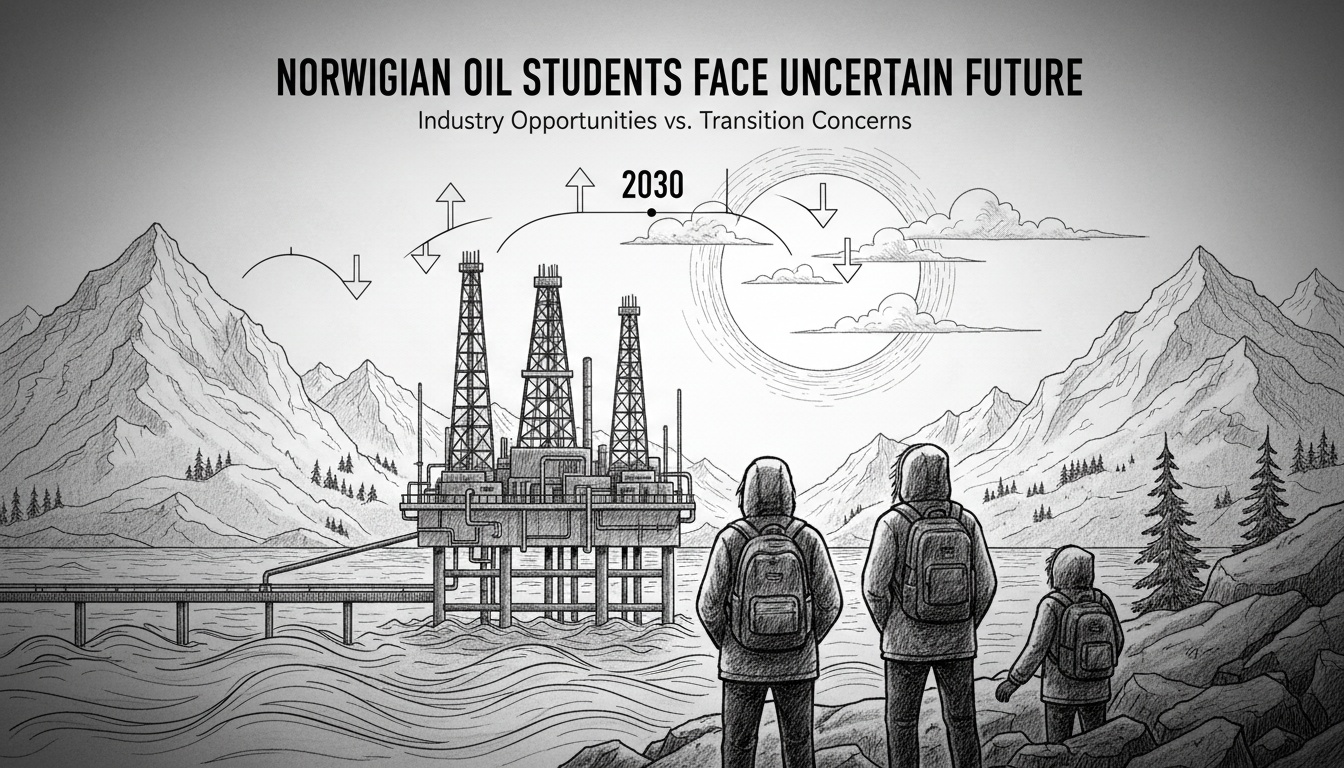Engineering student Filipp Løvseth balances his studies at the University of Stavanger with work in Norway's oil sector. He voices growing concerns shared by many students about their career prospects. Recent workforce reductions in major oil companies have heightened these anxieties.
Løvseth explains the student perspective clearly. We feel the impact even though we haven't lost jobs yet. We're the ones who need those positions later. He points to recent downsizing announcements affecting hundreds of workers in Stavanger-based companies.
The petroleum engineering student wants straightforward answers. I need to know whether there's a future for me in oil or not. His uncertainty reflects broader tensions within Norway's dominant industry.
Industry leaders present conflicting outlooks. Oil expert Tore Guldbrandsøy believes investment peaks on the Norwegian continental shelf have been reached. Meanwhile, company representatives maintain business stability.
Communications director Alice Bergfall states their organization remained stable for years. She sees no substantial changes coming soon. She emphasizes significant untapped potential remains in Norwegian waters.
Major operators report strong current activity levels. Var Energi's communications director Liv Jannie Omdal notes high production exceeding 400,000 barrels daily. Equinor spokesperson Gisle Ledel Johannessen describes consistently high activity across their portfolio.
These assurances don't comfort student Løvseth. He finds corporate statements difficult to trust completely. He understands companies must protect their interests and investor relations.
The Norwegian Petroleum Directorate offers more credible projections for students. Director Kalmar Ilstad explains production will likely begin declining around 2030. The speed of decrease depends on exploration success and technological developments.
Their resource report outlines three possible scenarios toward 2050. All show production falling, just at different rates. This official assessment worries many petroleum technology students.
Energy Minister Terje Aasland addresses these concerns directly. He confirms oil will remain Norway's most important industry for decades. His message to young people emphasizes their crucial role.
We clearly need more young people here. Those choosing this industry will help cut emissions and develop new technology. He sees them building bridges to future energy systems.
The Petroleum Directorate forecasts substantial investments continuing. Their 220 billion kroner estimate for 2026 represents the second-highest level since 2014.
Department head Øystein Arild at the University of Stavanger observes mixed employment prospects. He acknowledges slightly tougher job hunting for 2026 graduates compared to last year.
Yet Arild remains optimistic about long-term opportunities. Oil and gas will be Norway's most important industry for decades. He predicts strong demand for new expertise despite some workforce reduction.
As student association leader, Løvseth hears frequent discussions about industry uncertainty. He notes widespread concern among peers about their professional futures.
The engineering student maintains practical perspective about his education. His degree provides flexibility to transition to other industries if necessary. This backup plan offers some security amid the uncertainty.
Norway's energy transition creates complex challenges for the next generation. Students like Løvseth navigate between industry assurances and official projections showing eventual decline. Their career decisions will shape Norway's energy future for decades.

